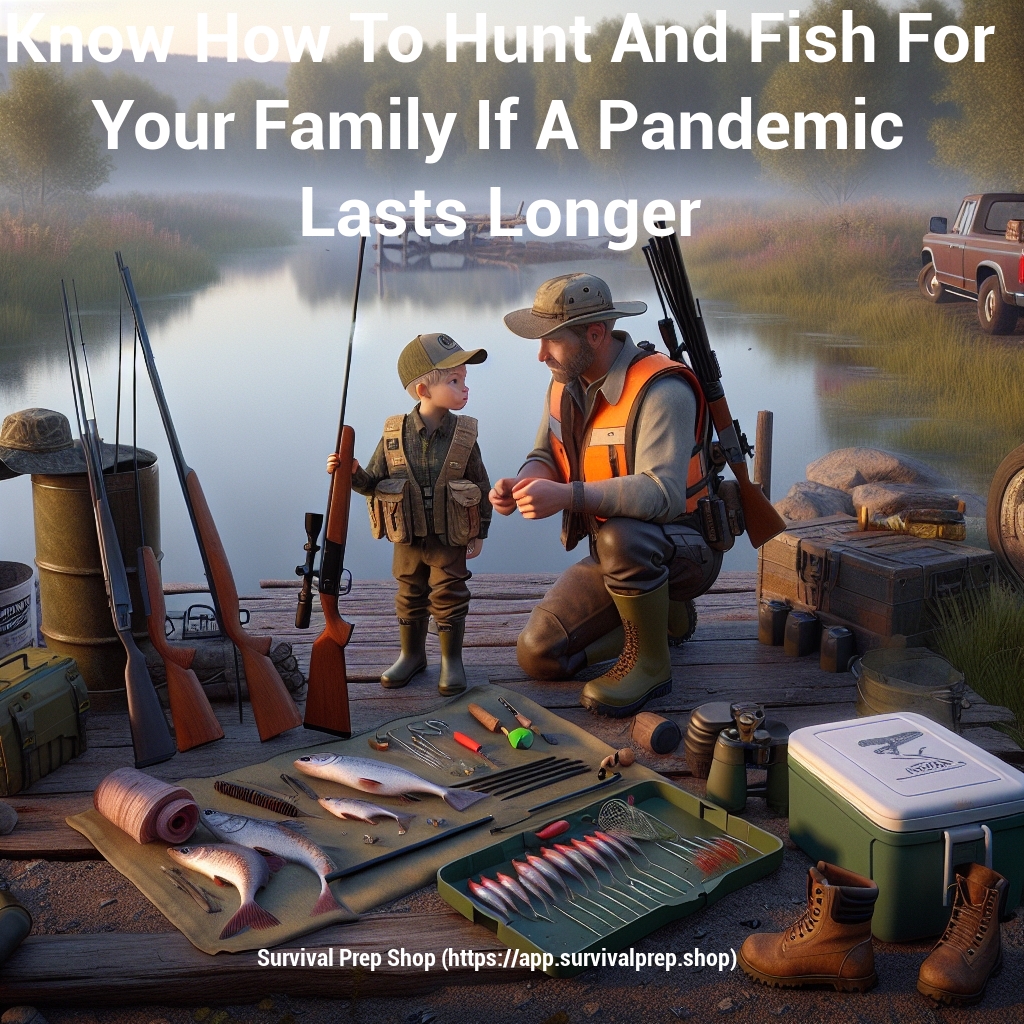
Hello everyone, and welcome to the Survival Prep Shop.
I’m delighted to join you in another invigorating discussion about all things survival. As we explore together, keep in mind that my advice comes from a place of personal practice and reflection.
Everyone hopes that when a pandemic hits, it will be over quickly. But a pandemic isn’t something that can always be charted precisely. They can last for a few weeks, a few months or stretch toward a year or more before it’s brought under control.
Regardless of how prepared you are with your food supply, you should always take into consideration that something could happen to that supply. In the event that something does go wrong and you run short on supplies or your food supply is destroyed, you may not be able to bring more in the way you first stored it up.
For that reason, you need to know how to hunt and fish to provide for your family’s food needs. If you’re a complete beginner and you know someone who’s been active in the hunting community, see if he’ll let you come along so that you can learn from that person. Seeing things done hands-on will help you pick up the skill faster.
When you’re hunting, you need to know how to find the game that you’re seeking. This involves being able to track the game. Animals will leave a trail and you need to know which trail belongs to which target. Practice with your firearm before you go hunting – especially if you’re not used to hunting. An injured animal can be a dangerous one. Never aim your firearm at anything except your target. Start by hunting prey that’s smaller first before you decide to go after the bigger animals.
The supplies you’ll need for hunting depend on what you’re hunting. But some standard hunting equipment includes proper clothing – including safety vests and boots. It also includes rifles, shotguns and handguns, plus the accompanying ammunition. You’ll need binoculars and night vision scopes. You’ll also need carts or drags if you’re hunting larger game like deer. You can add to that knives or butchering kits.
For fishing, here are a few essentials to start:
- A rod and bait. A fishing rod can be one such as a casting or spinning rod. But a simple fishing pole will do the job as well.
- A light reel if you’re a beginner, because this lets you feel the way the fish move.
- Start with the basic bait and lures. If you don’t have any plastic fishing lures, you can use earthworms. These should be plentiful, and because they move in the water, fish are attracted to them.
- Other supplies you’ll need are hooks and bobbers, a bait bucket if you use live bait, fish stringer, and a net.
- For after you catch the fish, you’ll need a filet knife and ice packs to pack the fish in the cooler.
- For peak fish biting times, you’ll want to look at a lunar calendar. You can see these online many places free of charge.
Thank you for sticking with me to the end of this article. I’m always pleased to share the wisdom I’ve gained with you, my kindred spirits in resilience. Keep on building your safety and survival savvy! Thanks again.
TK – Survival Prep Shop
— Don’t forget to check out our YouTube channel — Click here —
